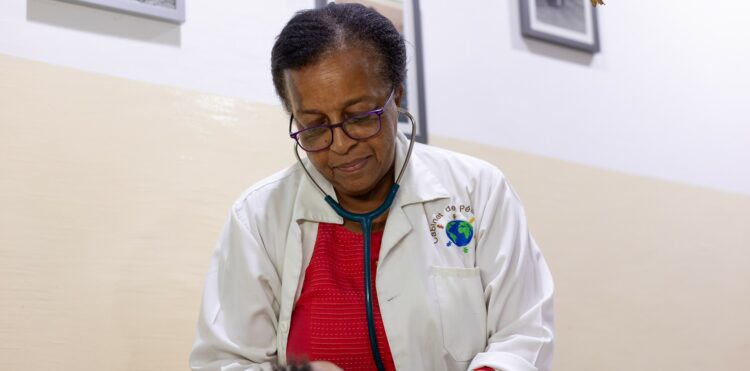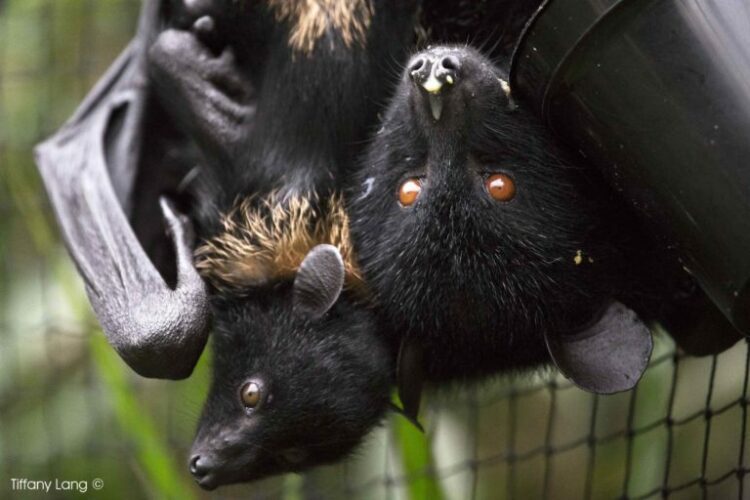In Djibouti, an estimated 8,000 people live with HIV, a figure likely underestimated due to the persistent stigma surrounding the disease. To enhance integrated family care, three women joined forces in 1995 to create the Solidarité Féminine association. Among them was Dr. Emma Acina, whom we met at her practice.
Dr. Acina, 67, is a dynamic woman with a great sense of humor, always ready to share an anecdote. Originally from Brittany in western France, she moved to Djibouti in the 1980s and quickly realized that much needed to be done to improve health conditions in this small East African country.
After working as a pediatrician at the Peltier public hospital, she received one of the few individual loans granted by AFD in 1994 to open Djibouti’s first private pediatric practice. Her success was immediate: “I remember the first days after opening,” Dr. Acina recalls. “A friend who had just opened a practice in France advised me to take up reading while waiting for the first patients. So, I brought a book – which I’ve never opened!”
Watch the video: Living with HIV in Burundi (English subtitles in YouTube settings)
The humble beginnings of a program that would have a big impact
A year later, two women approached her to join them in establishing an association: a midwife named Mme Hasna, who had been caring for the first HIV-positive women, and her friend Adabia, a mother. Dr. Acina readily agreed. “Originally, we just wanted to create a place where HIV-positive women and other women in difficult situations could meet in peace,” she says. “They were often in precarious situations—homeless, far from home, people expelled by their families—and generally stigmatized. We just wanted to offer them a little comfort and dignity.”
“Often, they learn that they are HIV-positive during their first pregnancy. Initially, we encouraged them to share this information with their husbands, so they wouldn’t have to bear the burden alone. We quickly stopped when we saw the consequences for them: violence, divorce, rejection. They were also very alone with their feelings of guilt, particularly about passing the disease to their child. Our role was to provide both medical and psychological support.”
Further reading: Transforming menstrual hygiene in Ethiopia
Integrated Support
Over time, the association’s activities multiplied, and a partnership was established with Sidaction in 2011. The aim: to provide local support, taking care of the children of HIV-positive mothers, organizing distributions of powdered milk (as HIV can be transmitted through breastfeeding), medicines, and food and breastfeeding kits. This project has been supported by AFD via Sidaction since 2014. Currently, Solidarité Féminine supports 46 HIV-positive mothers and 52 children and adolescents on ARV (HIV treatment).
Despite society’s deeply rooted stereotypes, Dr. Acina’s optimism allows her to see the glass as half full. “I’ve seen women come to the practice fully veiled or even change their voice, adopting an accent to avoid recognition. But we’re noticing that more and more fathers are coming to fetch the milk, which was absolutely not the case a few years ago. Mentalities are changing slowly, but it’s starting to happen.”
Dr. Acina herself follows the children in her capacity as a pediatrician. “I’m on my second generation of HIV children. In other words, children I’ve seen who are carriers of the virus are bringing me their children who are not carriers. It’s a real source of hope,” she says.
Art as Therapy
The latest innovation in the support provided by Solidarité Féminine is art therapy. This project is also supported by AFD as part of the Accès Culture initiative.
Further reading: Art as a Vehicle for Development
“As we thought about what more we could do for these women and children, we realized they still carried a heaviness in their daily lives, a need to express themselves in the face of the double burden of illness and imposed silence. So, we’re going to offer workshops in singing, expressing themselves with materials such as paint, and creating crafts using locally collected products.”
At this stage, eight psychosocial counselors have been trained in these techniques, which they can go on to use with patients.
See some of the images featured in the exhibition here (text in French)
Source link : https://www.afd.fr/en/actualites/50-years-djibouti-and-seeing-results-fight-against-hiv
Author :
Publish date : 2024-07-08 12:28:12
Copyright for syndicated content belongs to the linked Source.





